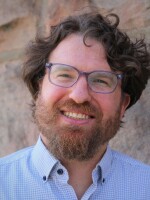A handful of Jewish women spent last Sunday morning in the kitchen of Pennsylvania State Rep. Abigail Salisbury’s Swissvale home to engage in what she has dubbed “babka diplomacy.”
They were baking 24 loaves of babka together — “it's like cinnamon roll, but in loaf form,” Salisbury said — to deliver to Pennsylvania’s state legislators with a message attached: “Please remember your Jewish constituents at home.”
Salisbury’s husband is on the board of the synagogue they attend, but she said she hadn’t met many of the women who join her in her kitchen until recently, as more and more local Jews have taken an interest in issue-driven action.
One of those issues: Pennsylvania state legislators have failed to move the state’s primary election, despite it falling on the Passover holiday. That’s a day when Salisbury said some Jewish people are unable to write, let alone cast a vote. While absentee votes are an option, they sometimes arrive late, she said, and they don’t give Jewish voters who are still weighing candidates the time other voters will receive.
“People need to look more intentionally at the Jewish calendar when scheduling things like this,” said Bryna Siegel Finer, one of the women who had gathered at Salisbury’s house. “Other states had this on their calendar to hold their primaries on Passover. They have all changed this date since being aware of it, except for Pennsylvania.”
But “babka diplomacy” doesn’t just involve sending a message about the election, according to Rebecca Elhassid, one of the women who joined Salisbury in the effort to bake 24 babka loafs for state legislators. Elhassid said that instances of local antisemitism have seemed to increase since Hamas attacked Israel on Oct. 7.
It wasn’t uncommon to see hateful remarks on the internet, Elhassid said, but it’s since become much more physical — she pointed to a recent hammer attack on Mar Vista, a design business in Squirrel Hill that posted a “We stand with Israel” sign. This was a short walk from Elhassid’s house and she said many Jewish people were feeling afraid to outwardly show symbols of their religious identity right now.
“We're seeing people coming into Jewish spaces and starting to ignite these little fires of violence and vandalism, which we know from our thousands of years of history that it only escalates from here,” Elhassid said.
Elhassid’s grandparents moved to the United States from Iraq in 1951, she said. Ten years earlier, Jews in Baghdad had been attacked in a pogrom known as the Farhud. Elhassid said the cooking she had learned from her Iraqi aunts was less precise than the baking required for the babkas, as she helped weigh 120 grams of sweet filling on Sunday.
Elhassid said that silence of many groups after Oct. 7 also suggested a deeper antisemitism than she realized. “We saw all these women's rights organizations after there was this very public, horrendous rape of Israeli women … and women’s rights organizations collectively were silent,” Elhassid said.
There was only one explanation she could think of why groups that normally would speak out were silent. “The only reason you could come up with that they would be silent in this moment is the only thing that makes this moment different was that it was perpetuated largely against Jews,” she said.
Elhassid acknowledged that her Facebook feed — with many cousins in Israel sharing first-hand accounts of what happened on Oct. 7 — likely looks very different than social media feeds of many state legislators. “We are not going to be able to have real conversations on social media,” she said. “We have to engage in the physical world with one another. This is obviously extra physical because we're talking about food and things passing from hand to hand.”
Babka appreciators are split into two intractable camps, Salisbury said: chocolate or cinnamon. Salisbury is a cinnamon adherent but said she supports people who are devoted to their chocolate. Her husband, Andrew Horowitz, joked that Salisbury became pro-cinnamon in order to feed some of it to “their children” — a handful of dogs that were growling and barking just outside their kitchen door.
Salisbury said it took her a long time to master the babka recipe that her husband is so particular about. Horowitz denied the accusation, saying only that Salisbury had once tried to bake a babka with whole wheat flour.
Salisbury, who grew up in a farming community in rural Ohio, said her grandmother would cook with her in the hours between school ending and when her parents came home from work. So, when she first started her work in Harrisburg, she began bringing pastries along as gifts. “It's harder to say, ‘No, you can't have [something important] for your district’ when someone's brought you a delicious cinnamon bread.”
Every time she returns to Harrisburg, she said, it seems like she’s bringing more and more bread. Salisbury is the first Jewish woman to represent her district and the only Jewish woman in the state House. “I am doing what I often describe as being openly Jewish and just trying to talk about that,” she said.
Other groups in Pittsburgh were baking Jewish desserts like macaroons, as they aimed to provide a pastry with a message to all 253 state legislators. They planned to deliver them all on Monday morning.
After the baking event, Salisbury was hosting a Chanukah party at a popular Indian restaurant in Swissvale.
“People said, ‘Why are you having a Hanukkah party at an Indian restaurant?’ I said, ‘You know what? That's kind of my vision for this district: We're open to all kinds of people. All kinds of people can mix and mingle and learn about each other's foods and cultures and holidays and all kinds of things.”





